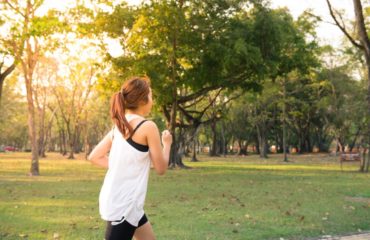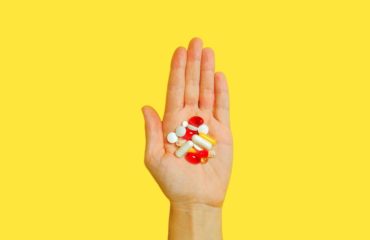
When exercising regularly at home or in the gym, the question of nutrition before and after exercise inevitably arises. What, when and how much can you eat after exercise to lose weight and make your body slim?
First of all, you need to know that you will only lose weight if you consume more calories daily than you consume. If you follow this basic principle of losing weight, you will get rid of excess weight, even if you do not follow the rules of what you have before and after training. However, eating well after exercise can help you optimize your fat-loss and body-building process.
EATING BEFORE TRAINING.
So, first, let’s take a look at what to eat before training. This will largely depend on when you practice.
1. IF YOU DO IN THE MORNING ON A HUNGRY STOMACH.
Exercising in the morning on an empty stomach is one of the most popular ways to burn additional fat, although coaches around the world are still arguing about the effectiveness of this method of losing weight. The adepts of the theory of training on an empty stomach claim that at this time the reserves of glycogen in the liver are minimal, which means that your body will draw energy from your fat and, accordingly, “destroy” it. Opponents of this theory say that training time does not affect the reduction of body fat, but you can easily burn muscles with morning exercises, which, accordingly, will distance you from a beautiful toned body.
Of course, the option of training on an empty stomach is only suitable for those who work out at home or who have a gym not far from home. Because keeping the body hungry for several hours (during and before training) is still not very useful. But if you still choose the morning time for sports before breakfast, then you do not need to eat anything before training, although you should definitely drink water.
In what cases it is NOT recommended to train on an empty stomach:
If you are doing strength training for muscle growth.
If you are doing high intensity workouts (tabata, crossfit).
If you find it difficult to tolerate training on an empty stomach, you feel dizzy and weak.
2. IF YOU DO IN THE MORNING AFTER SNACK.
What pre-workout food should you choose if you can’t work out on an empty stomach? For example, if you are doing intense training, strength training, or just uncomfortable exercising on an empty stomach. In this case, you can arrange for yourself a light carbohydrate or protein-carbohydrate snack 30-45 minutes before training. This can be coffee with a banana, bread with a slice of cheese, whey protein in milk, or granola bars (this should be a small portion of food, about 100 g). In this case, you will have energy and strength for classes. You can even drink a glass of kefir or milk, if that’s enough for you.
Please note that this does not have to be a hearty full breakfast. The snack should be small, otherwise it will just be difficult for you to do it. In addition, intense exercise on a full stomach can lead to indigestion or even vomiting. If you prefer a full breakfast and only then train, then in this case it is better to give preference to cereals and train at least 1.5 hours after eating.
3. IF YOU DO IN THE MORNING AFTER BREAKFAST, AFTERNOON OR EVENING.
Otherwise, complex carbohydrates are considered the best pre-workout diet. Complex carbohydrates include, first of all, cereals. 1.5-2 hours before training, eat buckwheat, rice, oatmeal, other porridge, durum wheat pasta (if it’s lunch, then with meat or fish). If you can’t eat before training, then again the carbohydrate snack, which was mentioned in the previous paragraph, will save you. But it is advisable to plan your day so that you have a full meal with complex carbohydrates before training.
EATING AFTER TRAINING
What to eat after training? Within half an hour after training, it is necessary to close the protein-carbohydrate window, in which the body has a strong need for nutrients. Replenishing the body with proteins and carbohydrates at this point will help the body to support your muscles.
Close the anabolic window 30 minutes after exercise. It is recommended to do this with a protein-carbohydrate combination. Examples of post-workout nutrition:
Low-fat milk protein shake (ideally whey protein)
Low-fat cottage cheese with fruit
Omelet or eggs with crispbread
Lean Chicken Sandwiches
If you want to lose weight, then the calorie content of the dish should be about half the amount you spent in class. For example, exercising, you burned 400 calories. This means that within half an hour after its end, eat a protein-carbohydrate dish with an energy value of 200 kcal. A full meal should be eaten 1.5-2 hours after this intermediate post-workout meal.
If you train in the morning on an empty stomach or after a small snack, then after training it is quite acceptable to have a full breakfast in 30-45 minutes. But this option is not suitable for those who work to increase muscle mass, in this case it is better to stick to the standard option described above.



